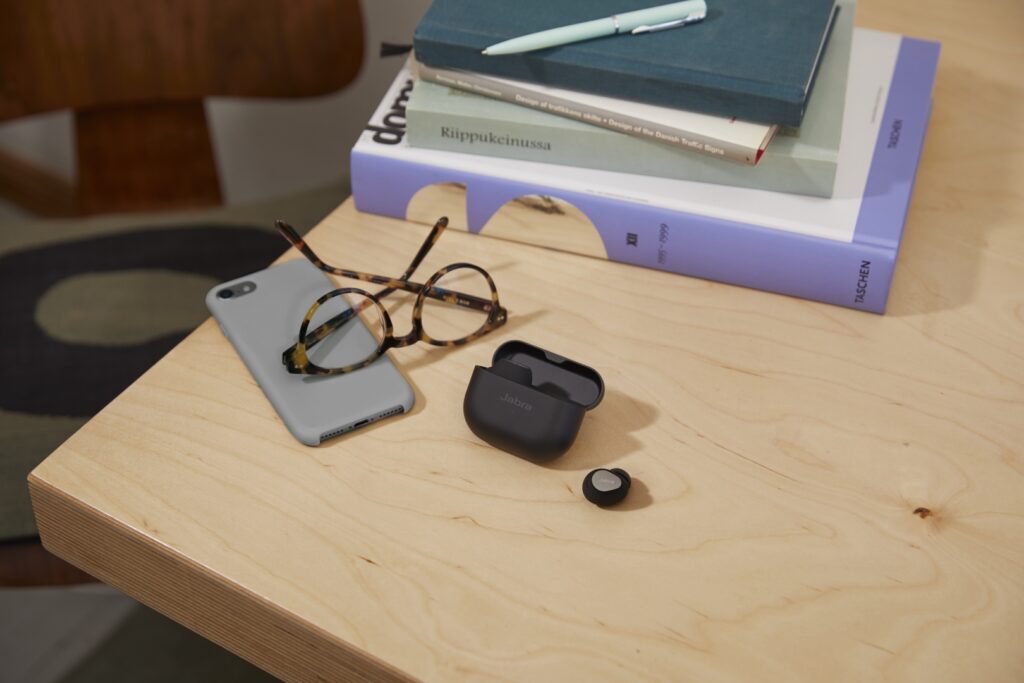The Great New Earbuds You Probably Overlooked
Jabra used to sell budget alternatives. Its first attempt at taking on the premium players is a true success.

Contrary to the advertising and a layman’s assumption, the core selling point of a wireless earbud should not be audio quality.
It’s a counter-intuitive claim. After all, they’re audio products, and the purpose of earbuds is to listen to music, audiobooks, podcasts, etc., and when you buy a monitor or a TV, the chief consideration really should be video quality.
Yet Bluetooth earbuds are based on the idea that customers don’t need or even want top audio quality. Even seven years after the launch of the original AirPods, Bluetooth codecs — the different compression software that carries audio over Bluetooth — are still far inferior to wired audio, and though the Sony WF-1000XM5 and Sennheiser Momentum 3 are widely considered the best-sounding wireless earbuds on the market, a cheap pair of wired “in-ear monitors” will far surpass the sound of them. Neither of them sounds even close to as good as my TinHifi T4, which cost a fraction of the price.
So why do we all buy Bluetooth earbuds?
It’s not just because of Apple’s “brave” decision to remove the headphones, as dongles have existed for years. Rather, it’s their convenience, comfort, and noise canceling. And by those criteria, the Jabra Elite 10 is more than worth considering. Even having completed testing, I continue to use this review sample pair as my default earbuds over dozens of other pairs that I own.

For several years, Jabra has been the market leader in the budget Bluetooth audio space, offering reasonable quality and comfort for a fraction of the price of their competition. However, over time, the market became saturated, and Jabra lost its competitive edge in lower price tiers. In the $100 range, Samsung and Nothing both offer highly competitive products if you don’t just want to go with the classic AirPods. Below this, the best option differs daily, as constant new releases and heavy discounts make it impossible to stand out in the budget space.
For this reason, Jabra has moved upmarket with the Elite 10, competing in the premium earbud range of $250, and it provides something slightly different in this range.
Namely, if you really love to sit back listening to music on your earbuds, Sony, Sennheiser, and Devialet have them beat. The Elite 10 has a wide soundstage and bright clear highs, but no matter how you tweak the EQ in Jabra’s app, the bass feels slightly hollow, and mid-range can get muddy in more complex compositions — which I particularly noticed with musical recordings.
Yet, to repeat, if you sit back in a chair to focus on your music, you shouldn’t be listening to wireless audio in the first place. With a slight-V EQ, listening to music in the gym or walking to the shops, the Elite 10 has a great, fun sound that makes pop, hip-hop, rock, and funky jazz feel alive. Switch to the “Speech” EQ, and they’re great for listening to podcasts too. There’s also a much-buzzed Dolby Atmos “Spatial Audio” mode, which I hated and turned off immediately.
Similarly, if you want block-out-the-world noise-canceling, this is not your best option. The “hear-through” transparency mode is among the best on the market, but if you’re listening to podcasts in a loud setting, the noise canceling only really works on background rumble. This is the hardest setting possible, but sitting on the London tube, listening to the Dispatch podcast “Advisory Opinions,” I sometimes thought I hadn’t turned noise-canceling on as the voices of the tube clashed with those in my earbuds. By contrast, podcasts are more than listenable in loud settings on my last-generation Sony WF-1000MX4 with noise canceling turned on.
The competition is a lot closer when listening to music — with the volume set at 50 percent or so, the sounds of the outside world are far more covered — but voices will still break through sometimes. I would like to see Jabra improve here; but again, if top noise-canceling is your chief buying decision, you shouldn’t be buying wireless earbuds anyway. Bluetooth over-ear headphones from Bose or Sony will always trump earbuds for this.
Where the Elite 10 truly stands out is for comfort and convenience. Their battery life is so long that when using them all day at my desk, I have never gotten a warning that they are running low. And they are so light and sit so comfortably in my ears that I often forget I’m even wearing them. Their semi-open fit certainly harms their noise-canceling, but it removes the “plugged ears” feeling of most earbuds, and they manage to do so without having a loose fit at all. The PowerBeats Pro remains the best-dedicated workout earbuds, but if you want one pair that will do you well in every setting, you can’t trump the comfort of the Jabras.
Before this, the Samsung Galaxy Buds Live — better known as the “Samsung Beans” — were the most comfortable I had tried, but those had no noise-canceling to speak of, and even so, got sore in the ears after eight or so hours. It is worth noting that if you are looking for a sub-$100 pair of earbuds, the Samsung Galaxy Buds Live are frequently discounted to roughly $60, and nothing comes close to their quality at that price.
Overall, I’m extremely impressed by the latest from Jabra. They’re supremely comfortable, last for ages, and come with all the conveniences you would expect — a relatively small soft-touch case, wireless charging, a helpful app for EQ customization, IP57 water resistance, dual connectivity, and fast Bluetooth 5.3 pairing. Although nobody has figured out a good way to integrate media controls into earbuds, physical buttons are better than touch surfaces, and those on the Elite 10 are easy and comfortable to use.
They even come in a fabulous, rich chocolate color, which takes the crown from Kim Kardashian’s Beat collaboration for best earbud color. And, if you’re concerned about the sound, yes, they’re fun to listen to.

